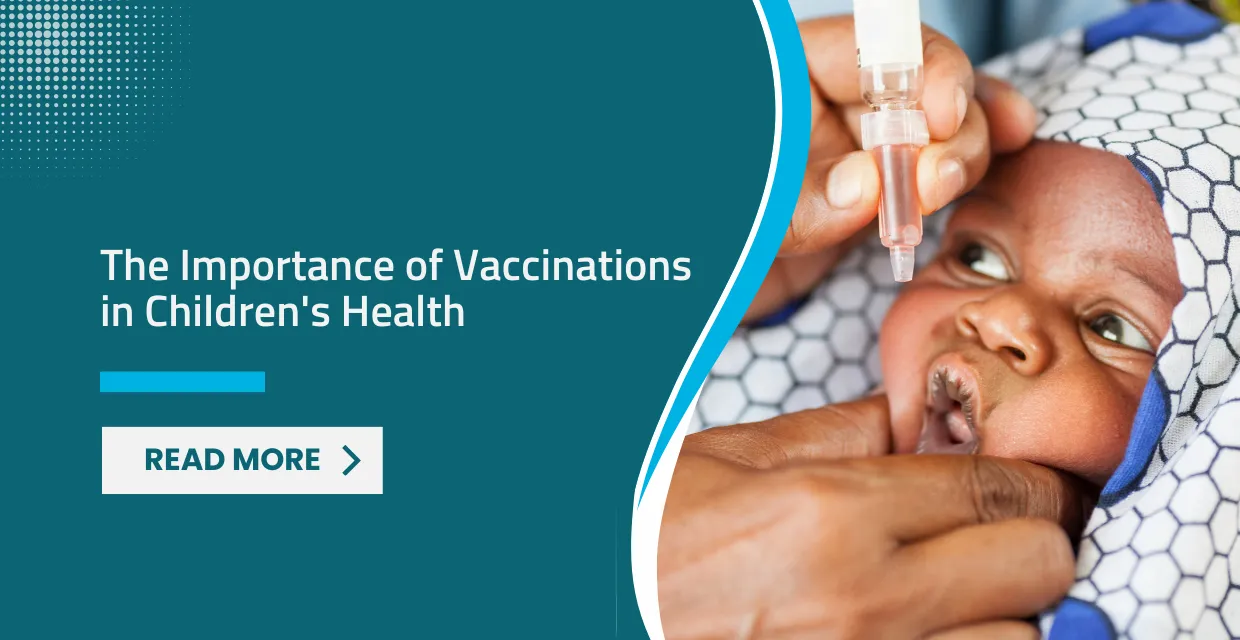Vaccinations are a cornerstone of public health and a fundamental component of pediatric care. They are among the most effective means of preventing infectious diseases, which, in the past, led to high rates of morbidity and mortality among children. With advancements in medical science, many of these diseases are now preventable through vaccination, leading to a significant decrease in child mortality rates worldwide. In regions like Bungoma, where access to comprehensive healthcare is crucial, the best hospitals play a pivotal role in ensuring that children receive the vaccinations they need for a healthy start in life.
Understanding Vaccinations
Vaccines work by mimicking disease agents and stimulating the immune system to build up defenses against them without causing the disease itself. When a vaccinated individual encounters the actual disease later in life, their immune system recognizes it and can fight it off more effectively. This process not only protects the vaccinated individual but, through herd immunity, also helps protect those who are unable to receive vaccinations due to medical conditions.
The Importance of Vaccinations in Children's Health
1. Preventing Life-Threatening Illnesses
Vaccines protect against diseases that can lead to severe complications and fatalities in children, including measles, polio, tetanus, diphtheria, pertussis, and Haemophilus influenzae type b infections.
2. Promoting Long-term Health
By preventing early childhood infections, vaccines contribute to the long-term health of children. Some vaccines, like the HPV vaccine, also protect against diseases that typically manifest in adulthood.
3. Supporting Healthy Communities
High vaccination rates contribute to herd immunity, reducing the spread of contagious diseases within communities and protecting vulnerable populations, including infants, the elderly, and those with compromised immune systems.
4. Reducing Healthcare Costs
Vaccinations are a cost-effective healthcare intervention. By preventing diseases, they reduce the need for medical treatment and hospitalizations, lowering healthcare costs for families and the community.
5. Eradicating Diseases
Widespread vaccination has the potential to eradicate diseases. This has been demonstrated with smallpox, which has been eradicated globally, and polio, which has been eliminated in most parts of the world.
Vaccination Schedule
The World Health Organization (WHO) provides a comprehensive immunization schedule that many countries, including Kenya, adopt and adapt based on local disease prevalence and healthcare policies. Parents must follow the recommended vaccination schedule, starting from birth through adolescence, to ensure their children are protected at the appropriate ages.
Overcoming Vaccine Hesitancy
Vaccine hesitancy, driven by misinformation, fear, and mistrust, poses a significant challenge to public health. Addressing concerns, providing accurate information, and demonstrating the safety and efficacy of vaccines are essential steps in encouraging vaccination. Healthcare providers, especially in trusted institutions like the Best Hospital in Bungoma, play a crucial role in educating families and communities about the benefits of vaccination.
The Role of Healthcare Institutions
Healthcare institutions, particularly in regions like Bungoma, are at the forefront of child immunization efforts. The best hospital in Bungoma would typically offer:
Comprehensive Immunization Services: Providing all recommended vaccines for children and maintaining vaccination records.
Community Outreach Programs: Extending vaccination services to remote areas to ensure all children have access to immunizations.
Education and Counseling: Offering accurate information about vaccines, addressing concerns and myths, and counseling parents on the importance of following the vaccination schedule.
Monitoring and Surveillance: Keeping track of vaccination rates and monitoring for potential outbreaks of vaccine-preventable diseases.
Global and Local Challenges
While global vaccination efforts have made significant strides, challenges remain. In some regions, conflict, poverty, and logistical barriers can hinder access to vaccinations. Locally, cultural beliefs, misinformation, and fear of side effects can lead to vaccine hesitancy. Overcoming these challenges requires a concerted effort from governments, healthcare providers, communities, and international organizations.
Future Directions
The future of vaccinations may include the development of new vaccines for diseases that currently lack them, improvements in vaccine delivery methods, and personalized immunization schedules based on genetic and epidemiological data. Ongoing research and innovation are vital to advancing vaccine efficacy and safety.
Conclusion
Vaccinations are a critical element of preventive healthcare for children, offering protection against various infectious diseases and contributing to long-term health and well-being. In Bungoma, the best hospitals and healthcare providers are essential partners in ensuring children receive timely vaccinations, thereby supporting not only the health of individual children but also the broader community. By fostering trust, providing education, and overcoming barriers to access, we can continue to harness the power of vaccinations to save lives and promote health for generations to come.



